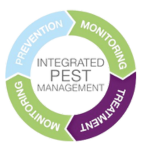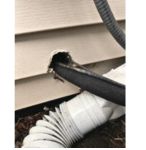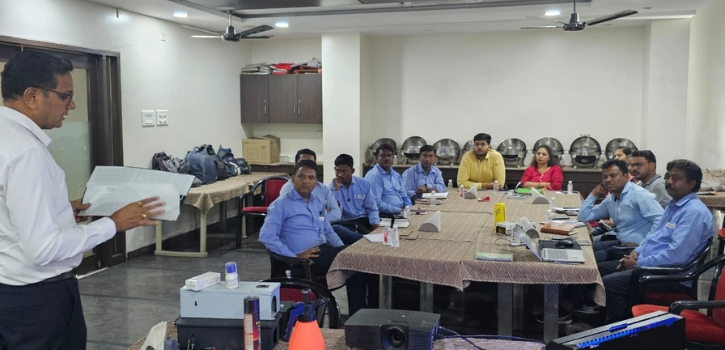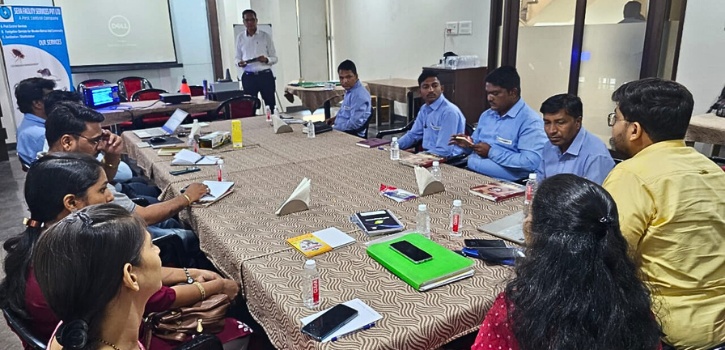Mastering Pest Control: A Complete Guide for the Food Industry.
Are pests harming your food facility, disrupting business operations, and damaging your reputation? It's time to take control!
We at Seva Facility Pvt. Ltd. are aware of the ongoing struggle against this pest. It is with great pleasure that we present our extensive blog, "Mastering Pest Control: A Complete Guide for the Food Industry."
Sevafacility understands the challenges you have in maintaining a pest-free environment, from bothersome insects to resilient rats. But don't be alarmed! You may easily regain control of your food processing factory with the use of our comprehensive SOP.
We offer Pest Control Services in Pune together with the knowledge and assistance you require to be successful. We can help you whether your objective is a spotless facility or you're having safety issues. Bid adieu to problems brought on by pests and welcome a prosperous, pest-free business!
Join us on this journey to safeguard your business and ensure the highest standards of safety and hygiene. Join Sevafacility as we use our excellent Pest Control Services in Pune to virtually eradicate all pests from your building.
What Is Pest Control In Food Processing?
Pest control, meaning the effective management and avoidance of different pests such as crawling insects, cockroaches, rodents, reptiles, and stored grain pests, is a major concern in the food processing industry. Every step of food production, processing, storage, and distribution depends on these efforts. Our pest management methods are based on our steadfast dedication to preserving food safety and quality, to reduce the possibility of infestation and damage to valuable food products.
Reliable pest control services in Indore, Pune, and Hyderabad guarantee careful treatment of pests including rats and insects. Protecting food processing plants places a high value on quality and safety, which are essential for maintaining priceless food goods.
The Impacts of Pest Control Ignorance In The Food Industry.
In the food industry, ignoring pest control can have several negative effects, such as:
-
Product infestation related to food:
We at Sevafacility recognize the urgency of food product infestation by insect pests. Through direct contact, urine, hair, droppings, and other means, these pests can spread harmful pathogens. In addition to posing a risk to consumers' health and safety, this contamination raises the possibility of contracting foodborne illnesses. Our Pest Control Services in Pune offer practical solutions to safeguard your food goods and uphold the strictest safety and hygienic regulations in order to solve this pressing issue.
-
Food quality and safety damaged:
A variety of bacteria, viruses, and diseases are introduced by pests into food processing and storage facilities, affecting the product's quality and safety. This unfortunate situation frequently leads to product recalls, affects consumer confidence, and seriously harms the reputation of food companies.
-
Loss of stock as well as financial losses:
We at Sevafacility recognize the urgency of food product infestation by insect pests. Through direct contact, urine, hair, droppings, and other means, these pests can spread harmful pathogens. In addition to posing a risk to consumers' health and safety, this contamination raises the possibility of contracting foodborne illnesses. Our Pest Control Services in Pune offer practical solutions to safeguard your food goods and uphold the strictest safety and hygienic regulations in order to solve this pressing issue.
-
Negative influence on the reputation of the company:
Businesses' reputations can be seriously harmed by pests in food facilities. Customers expect food that is safe and clean, and hearing about pest infestations can cause them to lose faith in businesses and become less attached to them.
-
A higher chance of client complaints:
Consumer sensitivities and illnesses can result from pests in food goods. Customer complaints, claims of product liability, and possibly even legal action against the food industry may result from this.
Pest Management Techniques That Work in the Food Industry.
To avoid, identify, and remove pests, the food sector needs to use a thorough and proactive strategy for
pest control in pune
. The following essential actions and techniques are frequently employed in the food company to manage pests:
-
Integrated Pest Management (IPM):
The infestation of food products by insect pests is an urgent issue, as they may transfer dangerous bacteria by direct touch, urine, hair, droppings, and other mechanisms. Such contamination puts customers' health and safety in danger in addition to raising the possibility of suffering diseases caused by food.

-
Regular inspections:
To find potential entry points, identify sensitive areas, and check any signs of pest activity, regular facility inspections are essential. To guarantee extensive coverage, these inspections should include a detailed review of loading docks, processing facilities, equipment, storage rooms, and any other relevant spaces.

-
Proper handling and storage:
Food items should be kept off the ground and away from walls. For storage, use safe, insect-proof containers. Rotate the items to stop insect growth in stored goods. Get dispose of things that are damaged or expired properly.
-
Detecting pests:
Use monitoring tools to find and keep an eye on pest activities, such as food stations, smell traps, and sticky traps. To spot trends or areas that need attention, review and document the results regularly.
-
Pest-proofing techniques:

Use monitoring tools to find and keep an eye on pest activities, such as food stations, smell traps, and sticky traps. To spot trends or areas that need attention, review and document the results regularly.
-
Employee Training:
Inform staff members on good hygiene habits, pest awareness, and reporting guidelines. Motivate staff members to report any indications of pest activity right away.
It's critical to understand that each food facility has unique requirements. As such, developing a customized pest management plan together with professionals who understand your unique needs and regional laws is essential. Active strategies, constant observation, and a focus on control are the fundamental elements of effective pest management in the food industry.
Pest Control Techniques That Work in the Food Industry:Proactive pest control strategies in Indore, Pune, and Hyderabad are essential. Professional Pest Control Services effectively manage pests for the food industry.



